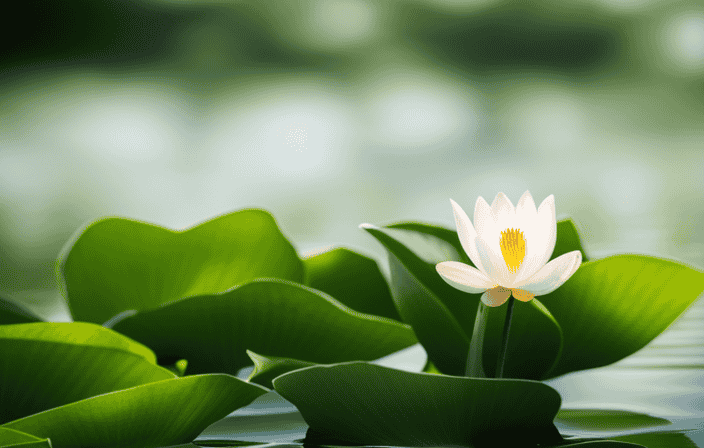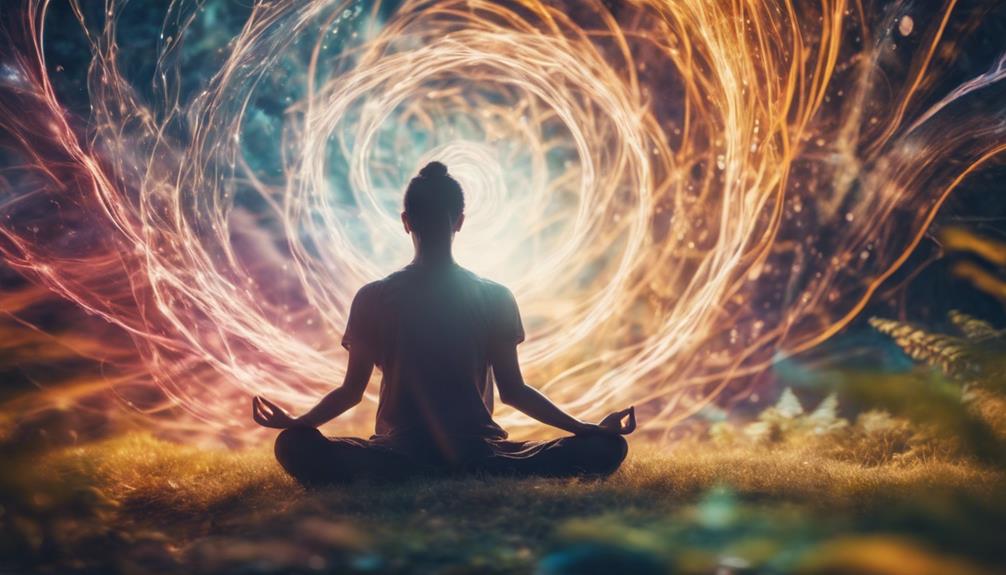Have you ever heard about how practices such as meditation, connecting with a higher power, or practicing yoga can genuinely improve your happiness and well-being? It’s true!
In today’s fast-paced world, many of us are searching for meaning, connection, and inner growth. We long for a deeper understanding of ourselves and the world around us. That’s why the path to spiritual enlightenment has become increasingly important.
Join me on a journey of self-discovery as we explore what it means to be spiritual, the characteristics of a spiritual person, and the practices that can help us unlock our inner spirit.
Key Takeaways
- Spiritual practices such as meditation, prayer, yoga, and being present can lead to increased emotional well-being, improved physical health, and a greater sense of peace and tranquility.
- Spirituality involves delving deep within oneself, connecting with something greater, and embarking on a journey of self-discovery to find solace in interconnectedness and cultivate a sense of purpose.
- Characteristics of a spiritual person include open-mindedness, empathy for others, a nonjudgmental attitude, the ability to understand different perspectives, and the creation of a safe space for authentic expression.
- The impact of spiritual characteristics includes an enhanced spiritual journey, positive impact on others, cultivation of unity and connection, fostering growth and harmony, and promotion of personal and global well-being.
What is Spirituality?
I seek meaning, connection, and inner growth on my path to spiritual enlightenment.
For me, spirituality goes beyond mere belief systems or religious practices. It is about delving deep within myself, exploring the depths of my soul, and connecting with something greater than myself.
It is a journey of self-discovery, where I discover my purpose and find solace in the interconnectedness of all things. Through meditation, prayer, and mindfulness, I cultivate a sense of peace and tranquility within, allowing me to navigate life’s challenges with grace and resilience.
As I spend time in nature, I am reminded of the beauty and interconnectedness of all living beings. This connection fuels my compassion for others, allowing me to empathize and extend kindness to all.
On this path to spiritual enlightenment, I am continuously growing, evolving, and discovering the profound meaning that life holds.
Characteristics of a Spiritual Person
Open-mindedness, empathy for others, and a nonjudgmental attitude are key characteristics of someone who is spiritually inclined. These qualities allow me to see beyond the surface and truly understand the experiences and perspectives of those around me.
By embracing open-mindedness, I am able to explore new ideas and beliefs, expanding my own understanding of the world. Empathy allows me to connect on a deeper level, offering support and love to those who need it most. And by adopting a nonjudgmental attitude, I create a safe space for others to express themselves authentically.
These characteristics not only enhance my own spiritual journey but also enable me to make a positive impact on the lives of others. Through open-mindedness, empathy, and nonjudgment, I am able to cultivate a sense of unity and connection, fostering growth and harmony in both myself and the world around me.
Practices for Spiritual Growth
Engaging in regular meditation, prayer, and yoga practices has been instrumental in deepening my spiritual journey and cultivating a greater sense of peace and self-awareness. These practices have become a sacred part of my daily routine, allowing me to connect with my inner self and the divine energy that surrounds me.
Through meditation, I quiet my mind and find solace in the stillness within. Prayer opens my heart and allows me to express gratitude, seek guidance, and surrender to a higher power. Yoga, with its gentle movements and mindful breathing, helps me align my body, mind, and spirit.
These practices have taught me the power of being present, of letting go, and of finding balance in the chaos of life. They have brought me closer to my true essence, allowing me to experience moments of profound clarity and connection.
As I continue on this path of spiritual growth, I am filled with gratitude for these practices that have transformed my life.
Frequently Asked Questions
How does spirituality differ from religion?
Spirituality differs from religion in that it focuses on personal experiences, inner growth, and seeking meaning beyond organized beliefs. It’s about connecting with something greater, finding purpose, and embracing a journey of self-discovery.
Can someone be spiritual without practicing meditation or yoga?
Yes, someone can be spiritual without practicing meditation or yoga. Spirituality is a personal journey, and there are many paths to explore. It’s about seeking meaning, connection, and inner growth in whatever way resonates with you.
How can spirituality impact one’s relationships and interactions with others?
Spirituality deeply impacts my relationships and interactions with others. It fosters empathy, compassion, and understanding, enabling me to connect on a deeper level. It brings harmony, love, and a sense of purpose to all my interactions, creating meaningful and fulfilling connections.
Is it possible for someone to be spiritual without believing in a higher power or deity?
Yes, it is possible to be spiritual without believing in a higher power or deity. Spirituality is about seeking meaning, purpose, and connection beyond the material world, and this can be achieved through personal beliefs and practices.
What are some potential challenges or obstacles that individuals may face on their spiritual journey?
Challenges on the spiritual journey are inevitable. Doubts, setbacks, and temptations may arise, but they are opportunities for growth. Embracing these challenges with resilience and faith allows us to deepen our connection and find true enlightenment.









